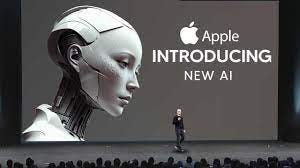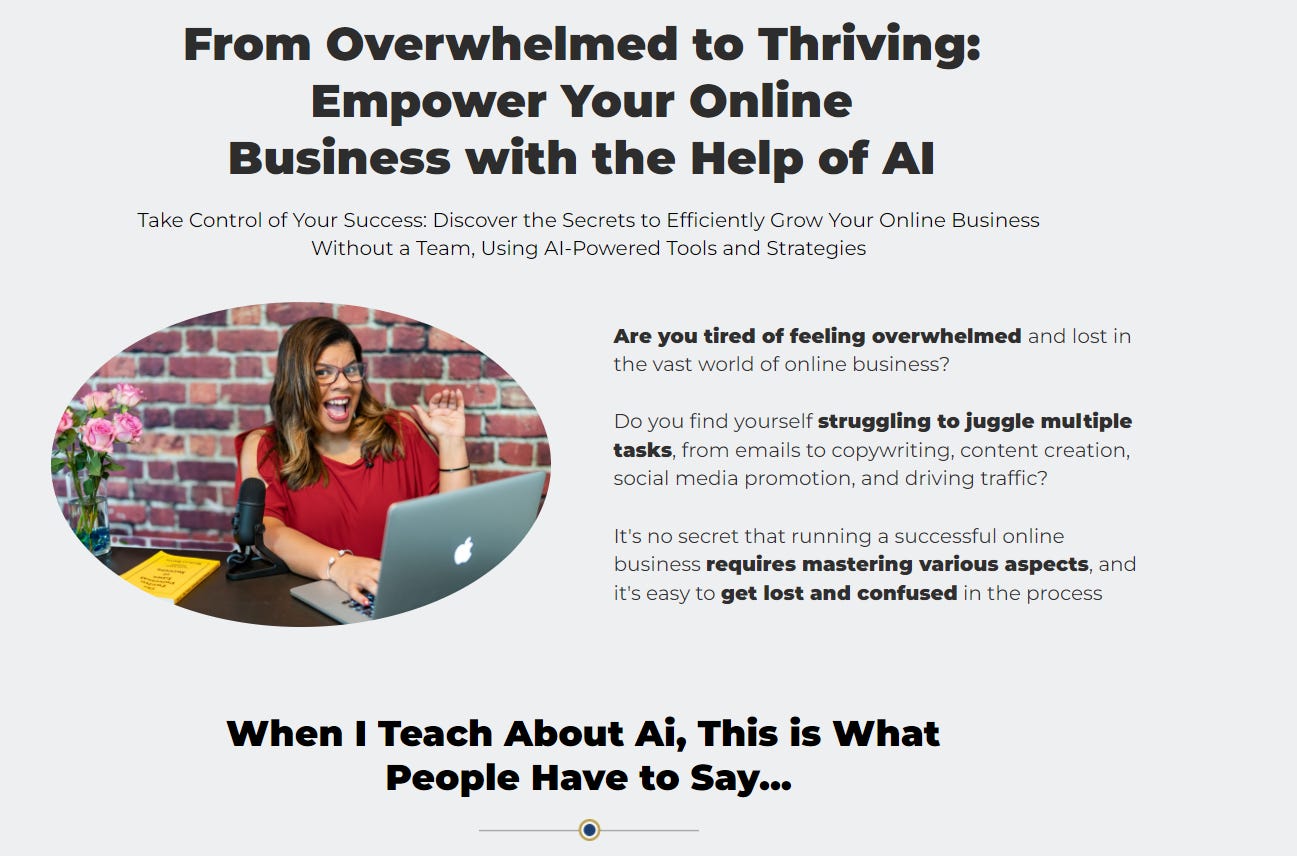The Cutting Edge of AI: Exciting Breakthroughs in 2023
The Cutting Edge of AI: Jaw-Dropping Breakthroughs Pushing the Boundaries of What's Possible
Welcome to The Week In AI newsletter, where we explore the most groundbreaking developments in artificial intelligence. In this issue, we’ll look at incredible innovations happening across industries - from revolutionary new AI systems beating humans at games, to AI saving lives in healthcare, and more. Buckle up for a fascinating tour through the AI landscape today.
Mind-Blowing AI Video Synthesis
First up - video synthesis AI has reached dazzling new heights. Apps like Kinemaster are using deep learning to generate shockingly realistic AI avatars that mimic a person's voice and mannerisms. Simply upload a photo, and the AI renders a lifelike video avatar seemingly able to hold natural conversations. The ability to clone anyone's speech patterns opens up astounding creative possibilities, but may also raise concerns of misuse.
Meanwhile, Meta recently unveiled their Make-A-Video AI tool that creates videos from text prompts. While not perfect, it foreshadows a future where creating custom video content is as easy as writing a brief description. Similar tools like ImagenVideo allow generating video from scratch using natural language. As these models advance, dynamically generated video content customized to the viewer may transform entertainment, advertising and more.
Of course, distinguishing real from AI-synthesized video will become increasingly challenging. But countermeasures like digital watermarking and metadata standards are emerging to identify artificial creations. Overall, while risks exist, the creative potential enabled by advanced video AI is breathtaking.
Revolutionary Protein Folding AI Saves Lives
In 2021, DeepMind's AlphaFold achieved a colossal breakthrough in predicting protein structures - a complex problem that had stumped scientists for decades. Now AlphaFold is being used to rapidly accelerate medical discoveries and develop new treatments.
Researchers are harnessing AlphaFold to better understand diseases and design novel proteins from scratch. One team created a completely new stable protein structure never before seen in nature! This opens the possibility of custom designing proteins with desired medical properties.
AlphaFold is also enabling faster drug discovery. It helped identify existing drugs that could potentially treat COVID within days of the pandemic starting. More recently, AlphaFold revealed a protein structure associated with heart disease, enabling a novel drug to be developed in just 12 months rather than 2-3 years typically needed.
As DeepMind prepares to release the updated AlphaFold 2, the potential to transform biochemistry and medicine through AI protein folding seems limitless. This groundbreaking technology is already saving lives today.
Humanoid Robotics Reach New Milestones
Robotics took major leaps forward recently with astonishing demonstrations from two humanoid robots - Tesla Bot and Ameca.
Tesla Bot, Elon Musk's 5'8" humanoid robot, walked out on stage and waved to the crowd at Tesla's AI Day event. While clearly early stage, it represents an impressive first version of a dexterous mobile robot leveraging Tesla's existing AI and robotics capabilities. Tesla Bot may eventually perform manual labor and household tasks. But its biggest impact could be showing the progress of consumer robotics, potentially inspiring more innovation in the space.
Meanwhile, Engineered Arts' Ameca robot delivered a stunningly human-like performance on stage at Web Summit. With its expressive face and conversational interaction, Ameca illustrated how uncannily close robotics is getting to mimicking human appearance and behaviors. It's a prime example of innovations that could make robots feel more natural to be around.
As hyperspecialized AI narrows the gap in specific skill areas, advanced humanoid robot platforms like Ameca and Tesla Bot promise to combine perception, mobility and intelligence in singularly capable physical forms.
Reinforcement Learning Masters Complex Games
Games have long been a testing ground for AI capabilities. Now, reinforcement learning algorithms are achieving new heights in mastering complex games with hidden information.
An AI called Libratus from Carnegie Mellon University made headlines in 2017 by beating top poker pros at no-limit Texas hold 'em, widely considered an "imperfect information" game requiring sophisticated reasoning and bluffing. This AI milestone seemed nearly insurmountable.
Yet just this January, CMU scientists revealed Pluribus, an AI able to defeat elite players at six-player no-limit poker - a dramatically more complex version with over 10,000 times as many decision points! Mastering multiplayer poker requires strategizing about what other players know and may do, adding psychology and game theory on top of masterful statistical reasoning.
Separately, DeepMind's AlphaStar attained Grandmaster level in StarCraft 2 - the highest rank only about 200 people hold. StarCraft demands managing resources, scouting opponents, and building an attack strategy, unlike pure reflex-driven games. AlphaStar's flexible learning algorithms likely promise advancements in handling complex real-world situations.
As AI proves capable of succeeding in messy, intuitive domains once thought off-limits to machines, it's clear advanced reasoning is blossoming alongside raw compute power.
Creative AI Makes Inroads with Fine Art
AI has shown promising creative capabilities for some time, particularly in generating musical compositions, imagery, and now even video content. But a historic milestone was recently achieved - AI art sold at premiere fine art auction house Christie's for over $1 million.
The piece, titled "Portrait of Edmond Belamy", was created by an algorithm named GAN that simulated human brushstrokes until generating a portrait reminiscent of 19th century artwork. While not fully original, it represented a conceptual artistic gesture.
The sale signals that AI art is being taken seriously as its own creative form by the establishment fine art world. While some argue AI cannot reflect human emotion or intent, it seems capable of impacting our senses and interpreting themes on canvas.
As models advance, AI-generated art may become increasingly sophisticated and personalized. For now, humans still lead on creative context, but machines have world-class technical ability. Their role in assisting and inspiring human creators will likely grow.
Healthcare AI Saves Dramatic Costs
AI and automation are revolutionizing efficiency in the massive healthcare sector. Recent research found that AI health assistants were able to handle 29% of patient calls compared to just 12% by human agents. And they resolved calls 2.5X faster on average. Virtual health assistants can provide 24/7 access to instant medical advice.
At Johns Hopkins, an AI monitoring system cut the time nurses spent on paperwork nearly in half. AI is automating repetitive tasks so doctors and nurses can focus on patients.
Financial benefits are enormous too. Working with Verily Life Sciences, Google's DeepMind developed an AI app that alerts doctors of acute kidney injury up to 2 days sooner. This transformed treatment pathways and is projected to save the UK's National Health Service over $200 million per year.
As healthcare costs spiral, AI automation offers a dual benefit - improving healthcare access and quality while dramatically cutting expenditures. More personalized, AI-powered solutions could help democratize quality treatment worldwide.
Autonomous AI Outperforms Doctors
In an astonishing study published in Nature Medicine, an autonomous AI system outperformed human experts in breast cancer detection. The AI had less than half the false positives and false negatives of six radiologists analyzing mammograms. Shockingly, the AI system even identified cancer risks that radiologists missed which were later confirmed to be malignant.
The AI was built by Google Health researchers using weakly labeled and unlabeled mammogram data. Its accuracy despite lacking expert human annotation makes the results even more profound.
This could be an inflection point in trust for autonomous AI verdict in mission-critical healthcare roles traditionally reserved for the highest echelon of medical experts. Though doctors will remain critical, AI augmentation may profoundly enhance diagnosis and treatment quality.
Revolutionary Brain-Computer Interface
Facebook's owner Meta is developing a non-invasive brain interface capable of typing at a rate of 100 words per minute just by thinking. Traditional BCI requires implanting electrodes into the brain. Meta's wrist wearable avoids surgery by decoding neural signals via imperceptible vibrations traveling through bones and skin.
In an impressive demonstration, a paralyzed man used this new interface to rapidly type sentences just by imagining the words. The system leverages AI to interpret the neurological signals picked up by the wristband.
Though still experimental, Meta's BCI could enable people with paralysis to communicate fluently just through thought. And able-bodied users may eventually type or interact with computers at superhuman speed. This could dramatically expand bandwidth between our biological cognition and digital devices.
China's GPT-3 Alternative Wows
As the AI superpower race heats up between the US and China, Chinese startup Anthropic made waves by open-sourcing its own GPT-3 rival model called Claude. Impressively, Claude seems on par with GPT-3 in conversational ability and comprehension.
Some claim Claude even exceeds GPT-3 on certain benchmarks, though lacking access to training data makes comparisons imperfect. Anthropic also open-sourced Constitutional AI datasets for safely aligning models.
With China barred from utilizing Western AI like GPT-3, indigenous alternatives are critical for their tech industry and government. Claude represents remarkable progress. And Anthropic's focus on AI safety is laudable.
But this ratchets up AI competition between superpowers. Danger exists of misusing such powerful models or racing prematurely without adequate safeguards. Still, Claude illustrates astounding AI potential regardless of geography. Let's hope for collaboration on ethics and governance.
Key Takeaways
As we've explored, staggering advances are happening across the AI landscape, from synthesized video indistinguishable from reality to revolutionary treatments thanks to protein folding algorithms. AI is also achieving new levels of mastery in diverse skill areas like complex gaming, healthcare, and content creation.
AI is already enhancing our lives in many ways while showing immense promise to further improve how we learn, work, communicate, and take care of our health. But risks remain around bias, security, and existential concerns that will require deep thought to address.
Ultimately, ensuring cutting edge AI like what we've highlighted today benefits humanity will be a collective responsibility. But if stewarded judiciously, AI could propel civilization to spectacular new heights. The possibilities are beyond thrilling.
Thank you for joining our latest The Week In AI newsletter. We aim to spread an informed perspective on the awe-inspiring innovations in artificial intelligence that stand to profoundly reshape our world. Please share your thoughts and feedback! See you next time.







